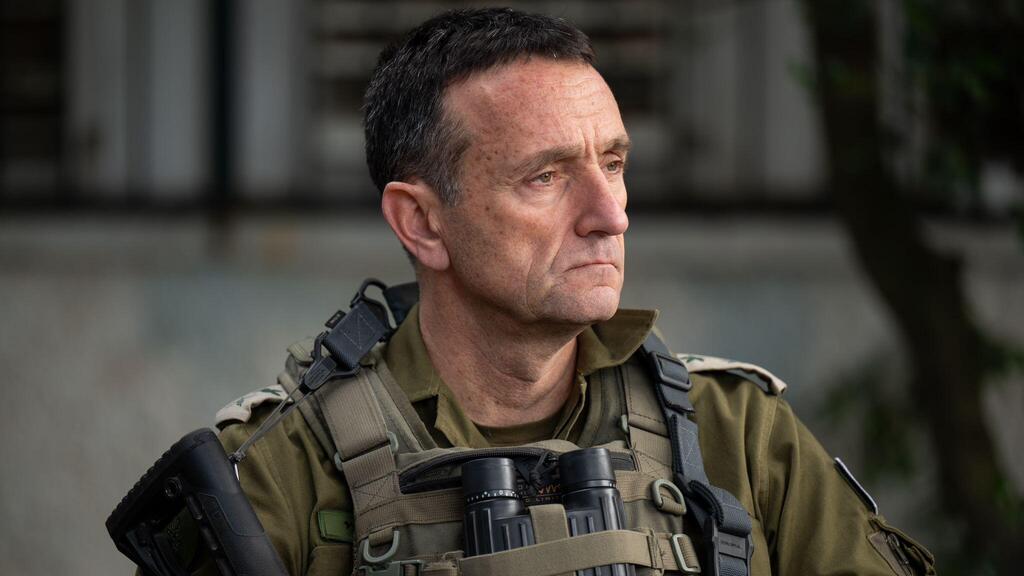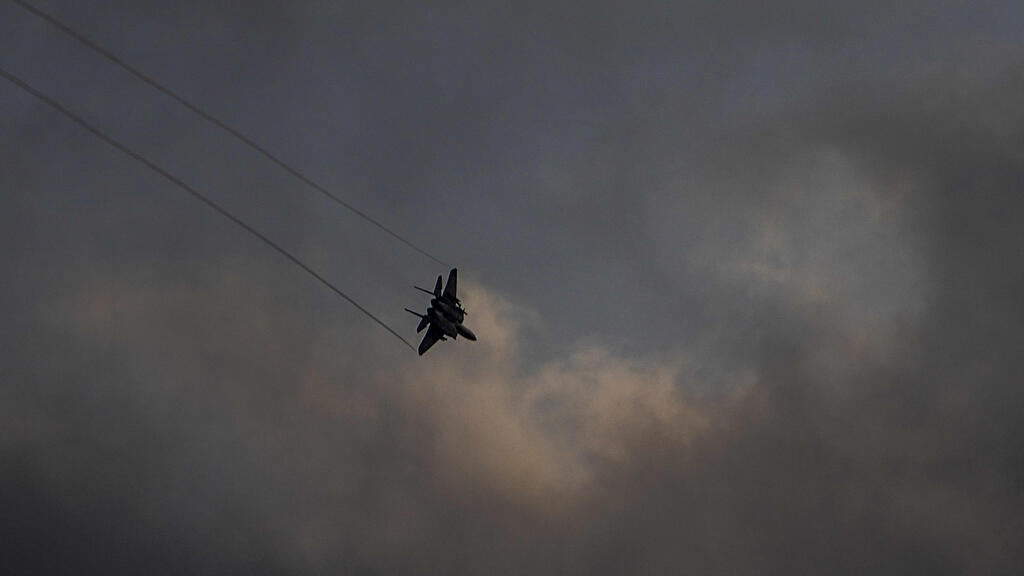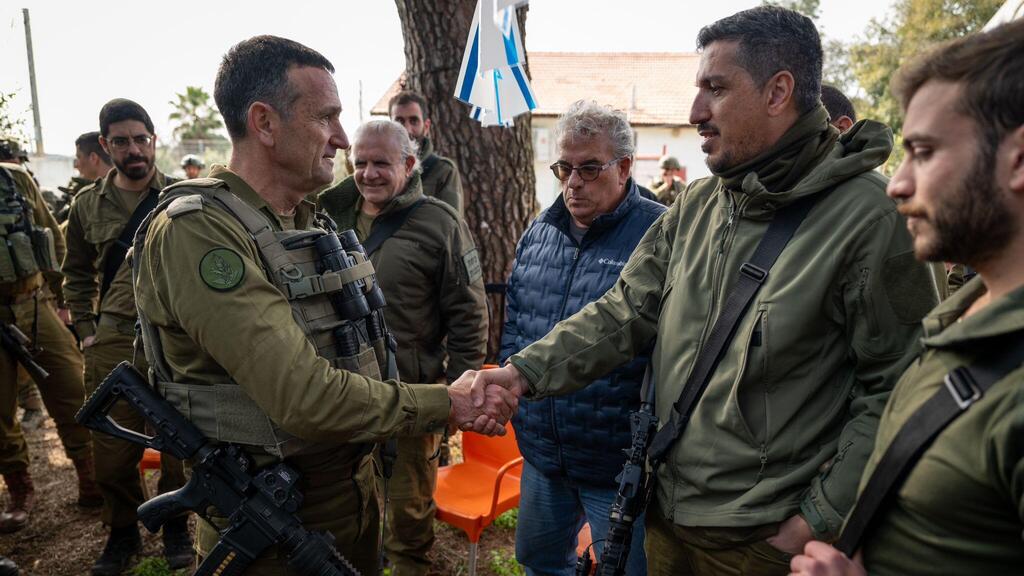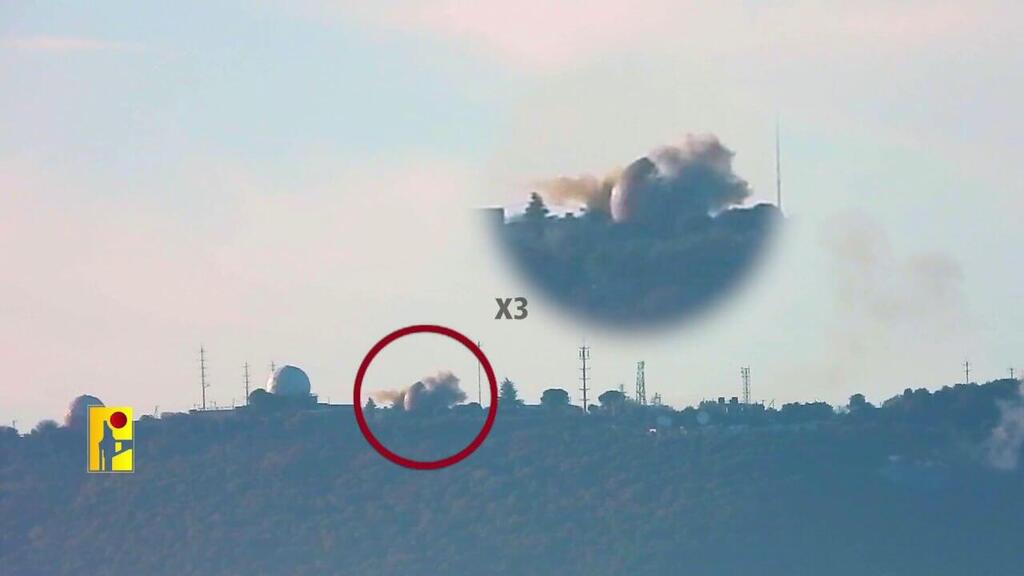Getting your Trinity Audio player ready...
IDF strikes in the area of Ayta al-Shaab in south Lebanon
(Video: IDF Spokesperson's Unit)
About an hour after the IDF announced Tuesday evening that it had attacked sites in Lebanon, additional artillery attacks in southern Lebanon are being reported in the country.
Read more:
The IDF spokesman announced late on Tuesday that its forces were currently attacking Hezbollah terrorist targets in Lebanon. The attacks, he said, come after an anti-tank missile launched from Lebanon earlier in the day hit the IDF Aerial Control Unit in Meron - a base known as the "eyes of the state" - and which has already been hit by past Hezbollah barrages.
4 View gallery


IDF Chief of Staff Lieutenant General Herzi Halevi conducted a situational assessment at the northern border
(Photo: IDF Spokesperson's Unit)
"A hit was identified in the area of the IDF Aerial Control Unit, and did not harm the site’s capabilities," the IDF statement emphasized. In addition, the IDF reported that approximately 20 launches were identified crossing from Lebanon into northern Israel, some of which were successfully intercepted by the IDF Aerial Defense Array and the rest fell in open areas according to IDF protocol.
IDF Chief of Staff Lieutenant General Herzi Halevi on Tuesday evening conducted a situational assessment at the northern border, with the Commanding Officer of the Northern Command, Major General Ori Gordin, the Commanding Officer of the 146th Division, Brigadier General Yisrael Shomer, and additional commanders.
The visit came in light of the escalation in the exchange of fire in recent days, including earlier on Tuesday evening when a heavy volley of dozens of rockets was also launched into Western Galilee, the same area that Halevi visited.
“Our forces are positioned here in order to locate the enemy and strike it. We are not waiting for anything. What we are saying is this: on the evening of October 7, Hezbollah decided to join in, and for that, it must pay a heavy price. It’s clear that the first thing we need to do is push back the enemy. Then, create a very strong barrier, establish strong intelligence gathering capabilities, position strong forces in the area as well as a strong civilian emergency response unit, and ensure there are bomb shelters and safe areas in homes and communities," Halevi said.
"We’d like to tell you, and I also believe, that there is no Hezbollah presence adjacent to the border fence or near it. People have returned here, and I think that if we operate correctly, more people will return here, thanks first and foremost to the security," he added.
Halevi also visited Moshav Shtula and met the members of the civilian emergency response unit.
4 View gallery


An F-15 fighter plane of the IDF Air Force flies in the north on the border with Lebanon
(Photo: AP Photo/Ariel Schalit)
The Lebanese newspaper Al-Akhbar, which is affiliated with Hezbollah, reported on two minor injuries from an Israeli drone attack in Beita al-Sha'ab in southern Lebanon.
At the same time, sources close to Hezbollah told Reuters that the terrorist organization will stop its attacks in the north only if a cease-fire is reached in Gaza.
"The moment Hamas announces its approval of the truce, and the moment the truce is declared, Hezbollah will adhere to the truce and will stop operations in the south immediately, as happened the previous time," one of the two sources said.
But if Israel continued shelling Lebanon, Hezbollah would not hesitate to carry on fighting, both sources said.
Hezbollah leader Sayyed Hassan Nasrallah said earlier this month the group's attacks on Israel would only end when Israel's "aggression" against Gaza ends.
4 View gallery


IDF Chief of Staff Major General Herzi Halevi met the members of the civilian emergency response unit at Moshav Shtula
(Photo: IDF Spokesperson's Unit)
However, Defense Minister Yoav Gallant is now declaring that Israel planned to increase attacks on Hezbollah in the event of a possible cease-fire in the Gaza conflict. He said the goal was to secure a Hezbollah withdrawal from the border region, either through a diplomatic agreement or by force.
The international community hopes to prevent a war in the north through a political settlement, but the sources noted that the Shiite terrorist organization continues to insist that any negotiations on a political settlement will only begin when a complete cease-fire is reached in the Strip.






